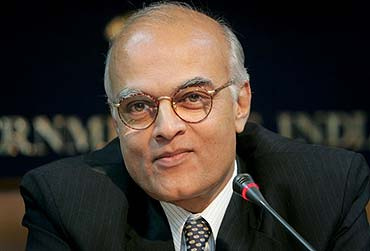JAIPUR: India’s problem is Pakistan which not only promotes terrorism from its own soil but also trains terrorists in Afghanistan, former National Security Adviser Shivshankar Menon has said.
The top diplomat, who also served as Foreign Secretary and India’s ambassador to China, rejected the claim that there was a direct link between economics and peaceful bilateral relationship.
“An economically strong or weak Pakistan does not matter. Pakistan was doing well economically in the 60s and 70s. It has been doing miserably for the last 15 years, we still don’t have good relations with it,” Menon said Saturday at the Jaipur Literature Festival.
“All we want is Pakistan to be at peace with itself. Thank you. We want to get on with our lives. We have better things to do,” he said.
Menon said the “problem” lay in the political needs of some people on the both sides to maintain a certain level of control, antagonism and hostility.
“For the Pakistan Army it is obvious because it helps them to have a say in the politics, budget and in the Pakistani imagination that they are the defenders of the country,” he said.
“India does not face an Afghan problem. We have a Pakistan problem. The terrorists are coming from there. The terrorists who are even trained in Afghanistan are by Pakistan or the ISI,” Menon said.
He, however, said the military action was not the solution to settle the longstanding problem.
“I don’t think there is a military solution to the Indo-Pak problem. Ever since we both went overtly nuclear, it has stabilised the situation and pushed the level of violence down. We fought three wars in the first 25 years and we haven’t fought since and that is when nuclear programmes took off, ” the former NSA said.
He was participating in a panel discussion alongside Pulitzer Prize winning American author and academic Steve Coll and US journalist and author Peter Bergen.
Menon said while other countries have a “common interest’ in Afghanistan, Pakistan’s interest lies in promoting terrorism in the war-ravaged country.
The veteran diplomat said the US might change its behaviour after the troop withdrawal from Afghanistan, but not Pakistan as the problem is intrinsic to Islamabad’s structure.
Prime Minister Modi visited Pakistan in December 2015 but the terror attacks by Pakistan-based militants in Pathankot in January 2016 and then in Uri in September strained the ties between the two countries.
India cancelled the foreign minister-level meeting with Pakistan to be held in New York last year, citing the “brutal” killing of three policemen in Jammu and Kashmir as well as the release of the postal stamps by Islamabad “glorifying” Kashmiri militant Burhan Wani.
Pakistan’s powerful military has always played a crucial role in the country’s politics. The army has ruled Pakistan for more than 33 years in the country’s 70-year history. (AGENCIES)


